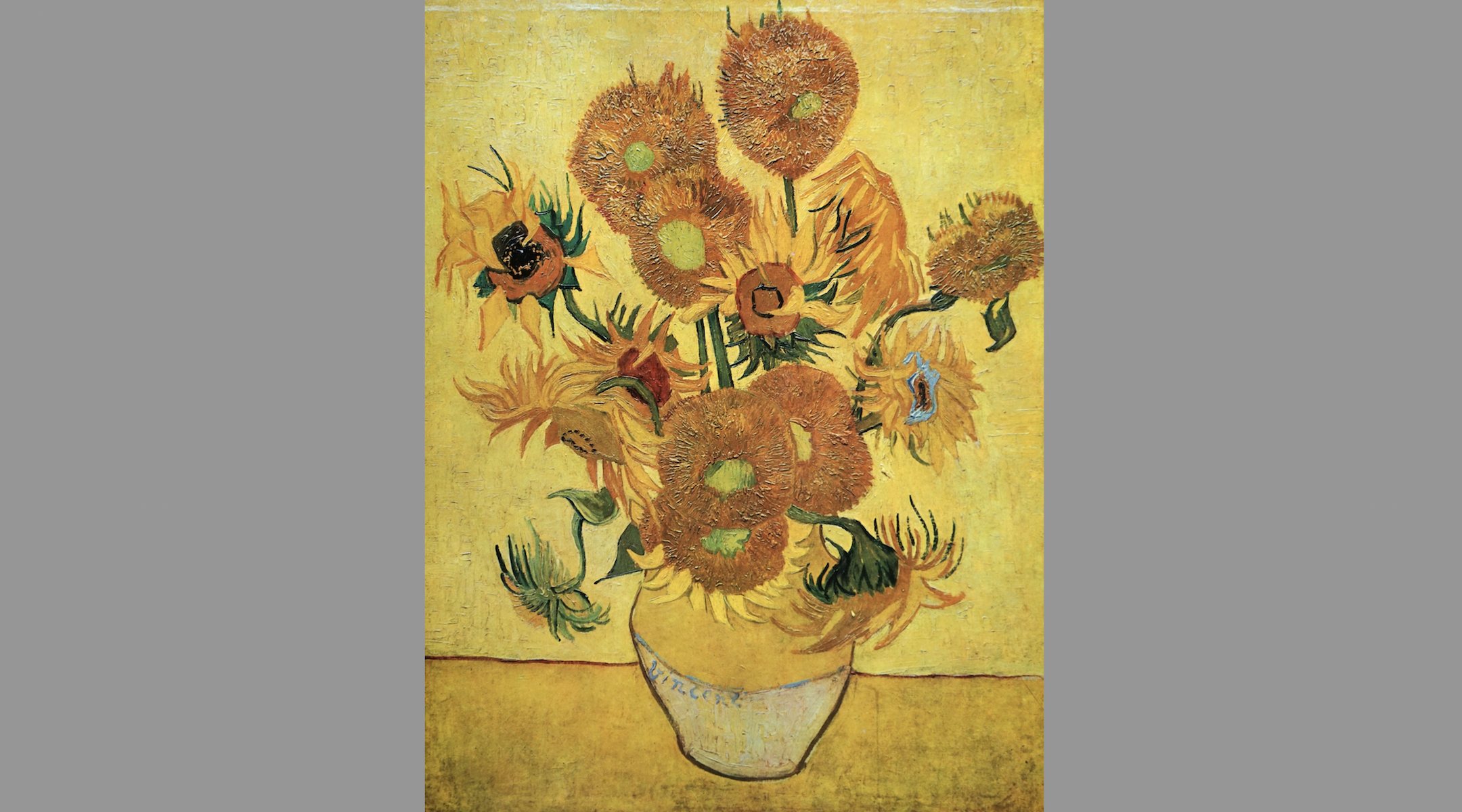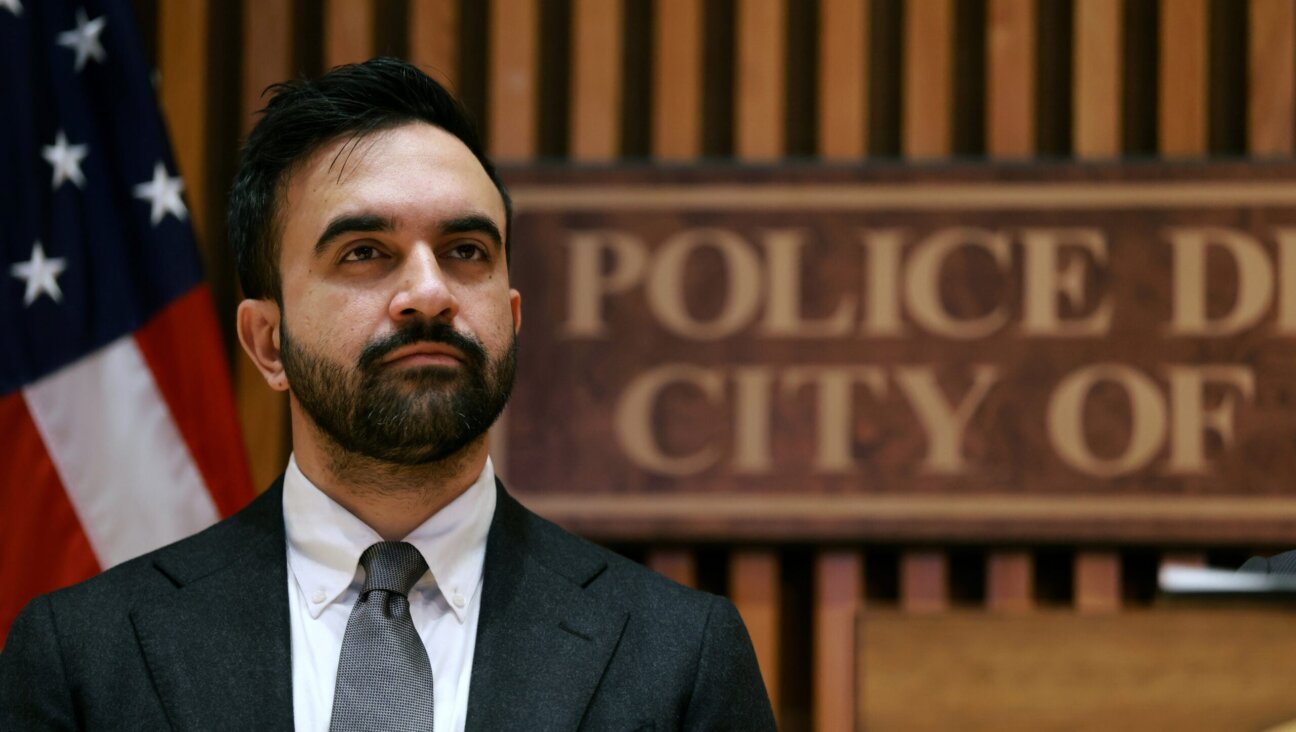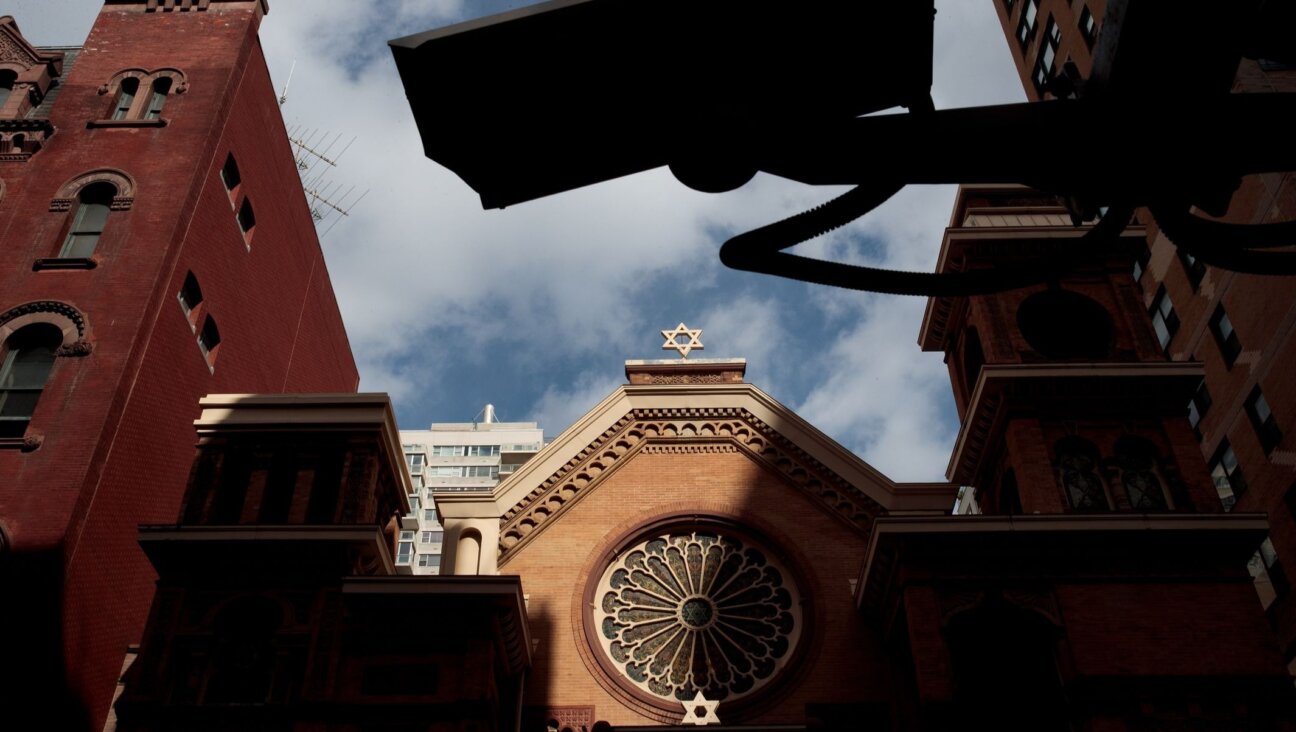Heirs of German-Jewish banker sue for restitution of one of van Gogh’s most famous paintings
Heirs of Paul von Mendelssohn-Bartholdy claim he was forced to sell “Sunflowers” when Nazi laws crippled him financially

“Sunflowers,” one of Vincent van Gogh’s most beloved works, is owned by a Japanese company. (Universal History Archive/Universal Images Group via Getty Images)
(JTA) — Heirs of a German-Jewish banker are suing a Japanese insurance company for the return of one of Vincent van Gogh’s famed “Sunflowers” paintings or at least $750 million in punitive damages.
In December, Julius H. Schoeps, Britt-Marie Enhoerning and Florence Von Kesselstatt, heirs of Paul von Mendelssohn-Bartholdy, filed a 98-page complaint with an Illinois federal court alleging that Mendelssohn-Bartholdy was forced to sell the painting in 1934 as the result of “racially exclusionary Nazi policies and concomitant coercion calculated to evict Jews from the economy and society of Germany.” They argue that the painting should be returned to his heirs as stipulated in his will.
A Sompo Holdings representative Courthouse News Service that the company “categorically rejects any allegation of wrongdoing and intends to vigorously defend its ownership rights in ‘Sunflowers.’” It displays the painting in a museum housed in its Tokyo headquarters building.
“It is a matter of public record that Yasuda Fire & Marine Insurance Company [Sompo’s predecessor] purchased the Vincent van Gogh ‘Sunflowers’ work at public auction from Christie’s in London in 1987. For over 35 years, the Sompo Museum of Fine Art in Tokyo, Japan has proudly displayed ‘Sunflowers,’” the statement reads.
Sompo International did not return a request for comment in time for publication.
The complaint alleges that Yasuo Goto, president of the Yasuda Fire & Marine Insurance Co. — which was incorporated into Sompo Holdings in 2002 — was aware of the painting’s previous owner when he purchased it at the Christie’s auction in 1987. It was sold for $39.9 million, at the time a record high price for a painting sold at an auction.
In 2001, a Yasuda representative wrote to the Art Institute of Chicago ahead of an exhibition including the painting that the company was “deeply concerned” and that its provenance had not been further investigated. The company displayed the “Sunflowers” work at the Art Institute anyway, and, according to the complaint, concealed the story behind its original sale from U.S. authorities, in violation of the National Stolen Property Act of 1934.
“By knowingly and fraudulently exploiting a Nazi-tainted painting in the U.S. for commercial gain, Sompo Holdings has violated multiple U.S. domestic and foreign policies,” the complaint states.
Representatives for the heirs declined to speak on the record.
Some art experts have argued the painting, the most famous in van Gogh’s “Sunflowers” series, is a forgery.
Paul von Mendelssohn-Bartholdy was a member of the prolific German-Jewish Mendelssohn family, whose members included composer Felix Mendelssohn and Jewish philosopher Moses Mendelssohn. In the late 1700s, family members founded the Mendelssohn & Co. banking house, which became the largest private bank in Berlin. Facing Nazi persecution, they were forced to close Mendelssohn & Co. in 1938.
According to the complaint, Nazi laws that targeted Jewish banks crippled Mendelssohn-Bartholdy financially, forcing him to sell some works in his art collection — which included pieces by Pablo Picasso, Vincent van Gogh, Pierre-Auguste Renoir and Georges Braque. He died in Germany in 1935 of a heart attack.
Other members of the family were forced into exile, committed suicide while under arrest by the Gestapo or went into hiding and abandoned their Jewish names.
The complaint is only the latest in an ongoing saga as Mendelssohn-Bartholdy’s heirs seek restitution of his collection. Thus far, they have filed lawsuits against the Museum of Modern Art, the Guggenheim Museum, the Andrew Lloyd Webber Foundation, the National Gallery of Art in Washington, D.C., and the German state of Bavaria for the restitution of five paintings by Pablo Picasso.
Settlements were reached on three of the cases while one — against the National Gallery of Art — resulted in the return of Picasso’s “Head of a Woman” to the family. The case against Bavaria is ongoing, as the Bavarian State Painting Collections refuses to refer the case to the German commission established to address disputed ownership over Nazi-era looted art.
This article originally appeared on JTA.org.















